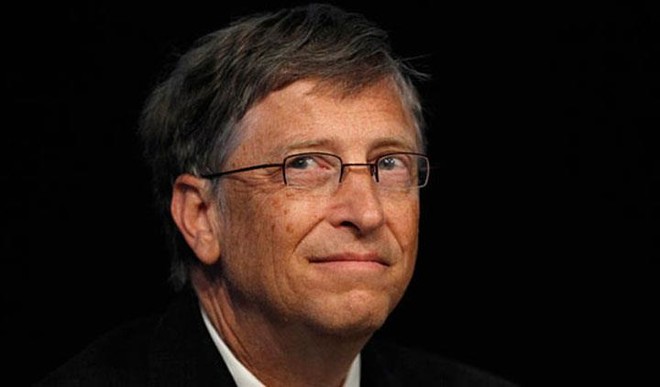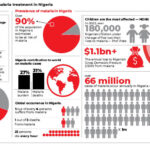The novel coronavirus pandemic will define the modern era in the same way World War II shaped an earlier generation, Microsoft co-founder Bill Gates writes in a 11-page memo outlining his ideas on how best to tackle the disease.
“This is like a world war, except in this case, we’re all on the same side,” he writes.
The Bill & Melinda Gates Foundation has committed 250 million dollars to the battle and Gates has been speaking up regularly to influence its direction – something that has sometimes placed him at odds with President Donald Trump and made him a target of right-wing pundits and conspiracy theorists.
Gates’ memo barely mentions politics, focusing instead on the technological innovations necessary to bring the virus to heel.
But he warned it would not be a fast or easy process.
“It is impossible to overstate the pain that people are feeling now and will continue to feel for years to come,” he said.
Gates said the social-distancing measures enacted around the world saved millions of lives and had not been an overreaction.
He pointed out that even without government mandates and lockdowns, people would probably have changed their behaviour anyway to avoid infection.
He noted that even as restrictions were eased, many people would not immediately resume their old routines until they felt safe.
He said that in the coming months, the drop-off in new infections would be precipitous in places where social-distancing had slashed the rate of transmission.
“A lot of people will be stunned that in many places we will go from hospitals being overloaded in April to having lots of empty beds in July,” Gates wrote.
“The whiplash will be confusing, but it is inevitable from the exponential nature of infection,” he added.
But as restrictions loosen, infections will flare and begin to grow rapidly at many sites.
Gates said that it would be impossible to return to normal or control the virus in the long term without advances in testing, contact tracing, treatments, and vaccines, thus echoing the view of public health officials and epidemiologists around the world.
The Gates Foundation is leveraging its funding and influence to accelerate research and development; many other organisations and companies are also in the hunt.
Dozens of new tests are coming on the market, including a rapid diagnostic test that works like a home pregnancy test.
According to him, home testing is the best approach to detecting and controlling new infections.
His foundation has been pursuing approval for self-swabs that would be analysed at a central lab.
Amazon recently announced plans to build its own testing lab to screen employees.
Gates warned that other companies were likely to follow suit – which could drive up the cost of testing machines for government labs.
Gates said that although more than 100 potential treatments were being studied, most of them would not work.
He ranked the antiviral drug remdesivir as one of the more promising prospects, along with plasma and antibodies from people who have recovered from COVID-19, the disease caused by the novel coronavirus.
The Gates Foundation is funding trials on hydroxychloroquine, the drug often touted by Trump, but Gates said it appeared its benefits would be modest, at best.
Since a miracle drug is not likely, the only long-term solution is a vaccine.
With greatly accelerated research, it could take as little as nine months – or as long as two years – to develop one, Gates added.
Then it will have to be approved by governments and mass-produced so that the world’s 7 billion people can each get one or two doses, depending on the vaccine type.
As most countries move into what Gates calls the “second phase of the epidemic” over the next two months, he foresees a “semi-normal” world.
“People can go out, but not as often, and not to crowded places.
“Picture restaurants that only seat people at every other table and airplanes where every middle seat is empty,” he said.
Schools will reopen, but not stadiums.
One model is the approach taken by Microsoft China, which has about 6,200 employees.
About half are coming into the offices, where social-distancing is in place, while others work at home.
Masks are required, as is staying home when sick and travel is limited.
“The basic principal should be to allow activities that have a large benefit to the economy or human welfare, but pose a small risk of infection,” Gates wrote.
But the picture is complicated and sorting out the details will be difficult.
For example, if some states lift restrictions quickly and experience a rebound, should other states restrict travel across their borders?
The economic impact so far has fallen disproportionately on lower-income people, while the disease itself is hitting hardest among racial minorities and poorer communities, Gates pointed out.
But at the same time, he said, the level of cooperation has been impressive as the world confronts the first modern pandemic.
“No one who lives through Pandemic 1 will ever forget it,” Gates said. (tca/dpa/NAN)

 Join Daily Trust WhatsApp Community For Quick Access To News and Happenings Around You.
Join Daily Trust WhatsApp Community For Quick Access To News and Happenings Around You.


